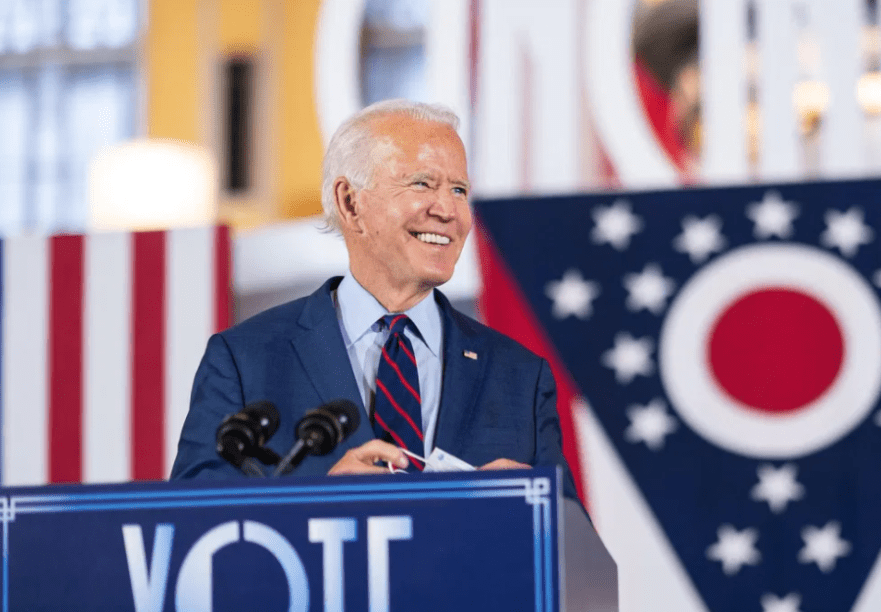With the recent unveiling of the COVID-19 relief package, the Biden Administration made a simple, yet extraordinary statement: housing is a right. That powerful concept can dramatically impact housing and homelessness policies for the better. AIDS Healthcare Foundation and its housing advocacy division, Housing Is A Human Right, applaud the new president.
“We thank President Joe Biden for recognizing that housing is a right,” says AIDS Healthcare Foundation President Michael Weinstein. “It’s a game changer that sends a clear message to policymakers throughout the country that housing is not merely a commodity, but an essential and fundamental need — same as food and water — for a human being’s existence. Government, therefore, must do everything it can to help provide safe, stable housing for Americans.”
Weinstein adds: “AHF and Housing Is A Human Right expect lawmakers — from California to Kansas to New York — to create policies for the housing affordability and homelessness crises that use ‘housing is a right’ as a guiding principle. When necessary, we will hold elected officials accountable to make sure that happens.”
In California, AHF and HHR are currently urging Gov. Gavin Newsom and state legislators to use the state’s windfall to provide $5 billion in rent relief, which also helps small landlords. Numerous legislators have signed on.
Biden’s recognition of housing as a right was made on page 11 of his COVID-19 rescue plan, under the proposal to deliver $5 billion in emergency housing assistance.
“This funding,” the Biden administration notes, “will allow states and localities to help approximately 200,000 individuals and families obtain stable housing, while providing a downpayment on the president-elect’s comprehensive approach to ending homelessness and making housing a right for all Americans.” (Italics added.)
Although not always carried out by American lawmakers, housing as a right is a widely recognized concept, according to Emily Bergeron, co-chair of the American Bar Association’s Civil Rights and Social Justice Section Environmental Justice Committee and assistant professor at the University of Kentucky.
In a 2019 article, Bergeron provided numerous examples: “The right is protected in Article 25 of the Universal Declaration of Human Rights; Article 11 of the International Covenant on Economic, Social, and Cultural Rights; Article 27 of the Convention on the Rights of the Child; Article 5 of the Convention on the Elimination of All Forms of Racial Discrimination; Article 14 of the Convention on the Elimination of All Forms of Discrimination against Women; and Article 11 of the American Declaration on Rights and Duties of Man. Housing is also included as an element of the UN Sustainable Development Goals. Goal 11, which seeks to ‘make cities inclusive, safe, resilient and sustainable,’ posits that sustainability requires addressing the shortage of adequate housing and advances the idea that by 2030, all countries must ‘ensure access for all to adequate, safe and affordable housing and basic services and upgrade slums.’”
President Franklin D. Roosevelt also recognized housing as a right. In 1944, when introducing a “Second Bill of Rights,” he emphasized that every American had the “right” to “a decent home” — a concept he believed would help the country as a whole.
“All of these rights spell security,” said Roosevelt in his address. “America’s own rightful place in the world depends in large part upon how fully these and similar rights have been carried into practice for our citizens. For unless there is security here at home, there cannot be lasting peace in the world.”
Biden’s position that housing is a right can fundamentally change the approach to solving housing affordability and homelessness crises in California and throughout the country.
First, legislators should now address the housing affordability and homelessness crises with a stronger sense of urgency, understanding that they are tasked with the sacred job of fulfilling Americans’ right to housing. Right now, more than 560,000 Americans are experiencing homelessness, and millions more face the prospect of homelessness due to the economic fallout of the COVID-19 pandemic.
Second, legislators must expand, and change when necessary, their philosophical approach to housing, such as abandoning “trickle-down housing” as the chief solution to the housing affordability crisis.
Trickle-down housing policy — strongly backed by the real estate industry and “YIMBY” groups such as Big Tech-financed California YIMBY — pushes for the construction of more luxury housing for a housing affordability crisis. That clearly doesn’t help middle- and working-class residents, who are hardest hit by the housing affordability crisis and can’t afford luxury housing. As a result, trickle-down housing doesn’t adequately, if at all, fulfill the right to housing for millions of hard-working Americans.
Third, legislators should work more closely with housing justice organizations to come up with policy that truly recognizes and implements housing as a right. Activists not only understand the street-level impacts of the housing affordability and homelessness crises, but they’ve also been longtime advocates for housing as a right. Activists are experts that should be consulted.
Fourth, the real estate industry, including Wall Street investment firms such as Blackstone Group, must become a part of the solution.
For years, corporate landlords and developers have fueled the housing affordability and homelessness crises, charging wildly inflated rents, opposing any kind of tenant protection, and pushing pro-gentrification policies such as trickle-down housing. Big Real Estate, on the whole, considers housing as merely a very profitable commodity, and largely ignores the plight of middle- and working-class Americans — and their right to housing. That must change.
With its vast resources, the real estate industry can undoubtedly figure out new business practices that 1) acknowledge and implement housing as a right and 2) can still provide a reasonable rate of return without negative, life-altering impacts on Americans.
President Joe Biden’s recognition of housing as a right is truly a game changer, but it must be more than a concept. Lawmakers must turn it into a reality — the sooner, the better.

